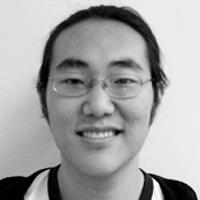Difference between revisions of "E. Alex Jung"
(→Views on race) |
|||
| Line 11: | Line 11: | ||
== Views on race == | == Views on race == | ||
| − | Jung believes we live in a "system of whiteness". He has written that some white people, including some of his closest friends, are anti-racist lovers of justice. However, he believes that whites as a group are | + | Jung believes we live in a "system of whiteness". He has written that some white people, including some of his closest friends, are anti-racist lovers of justice. However, he believes that whites as a group are complicit with systemic racism.<ref>[http://media.www.columbiaspectator.com/media/storage/paper865/news/2007/04/26/Opinion/I.See.White.People-2881501.shtml "To turn an oft-heard phrase around, some of my closest friends are white. They are anti-racist lovers of justice, wholly non-representative of their group."]</ref> |
He believes that white people, as a generalization, are unaware of their supposed privilege<ref>[http://media.www.columbiaspectator.com/media/storage/paper865/news/2007/04/26/Opinion/I.See.White.People-2881501.shtml "It's a generalization, of course, but not a superfluous one to state that white people at Columbia (not only of course) never think about the conditions of their privilege."]</ref> and resistant to discussing race issues<ref>[http://media.www.columbiaspectator.com/media/storage/paper865/news/2007/04/26/Opinion/I.See.White.People-2881501.shtml "Race is not an issue for most white people quite simply because they don't feel its weight. When a critique of white privilege alights on their shoulders, white people quickly cry reverse racism."]</ref>. | He believes that white people, as a generalization, are unaware of their supposed privilege<ref>[http://media.www.columbiaspectator.com/media/storage/paper865/news/2007/04/26/Opinion/I.See.White.People-2881501.shtml "It's a generalization, of course, but not a superfluous one to state that white people at Columbia (not only of course) never think about the conditions of their privilege."]</ref> and resistant to discussing race issues<ref>[http://media.www.columbiaspectator.com/media/storage/paper865/news/2007/04/26/Opinion/I.See.White.People-2881501.shtml "Race is not an issue for most white people quite simply because they don't feel its weight. When a critique of white privilege alights on their shoulders, white people quickly cry reverse racism."]</ref>. | ||
Revision as of 15:24, 25 May 2010
Eugene Alex Jung (usually known as E. Alex Jung), CC '07, was an active and well-known student at Columbia, majoring in anthropology. He served as editor of the AdHoc magazine, worked as a student advisor on the Student Governing Board, and was a leader in the 2006 SHOCC demonstrations. Jung has also developed a close personal relationship with Jewelnel Davis, University Chaplain, while working as a Chaplain's Associate.
Jung wrote columns for the Spec. He was known for expressing viewpoints perceived by many as "radical". Some consider his columns to be similar to those by Nell Geiser, a former Spec columnist.
In a Spectator column on April 26th, 2007, after suggesting that all too often "the responsibility [for facilitating dialogue] falls on marginalized people for not 'reaching out" or being too 'confrontational'", Jung rhetorically offered to "dance for [readers of the Columbia Daily Spectator] kabuki-like with chopsticks in [his] hair".
Contents
Views on race
Jung believes we live in a "system of whiteness". He has written that some white people, including some of his closest friends, are anti-racist lovers of justice. However, he believes that whites as a group are complicit with systemic racism.[1] He believes that white people, as a generalization, are unaware of their supposed privilege[2] and resistant to discussing race issues[3].
Furthermore, Jung believes that the Core Curriculum focuses excessively on the ideas and works of white men.[4]
References
- ↑ "To turn an oft-heard phrase around, some of my closest friends are white. They are anti-racist lovers of justice, wholly non-representative of their group."
- ↑ "It's a generalization, of course, but not a superfluous one to state that white people at Columbia (not only of course) never think about the conditions of their privilege."
- ↑ "Race is not an issue for most white people quite simply because they don't feel its weight. When a critique of white privilege alights on their shoulders, white people quickly cry reverse racism."
- ↑ "Du Bois writes about the deluded Western belief that 'every great thought the world ever knew was a white man's thought.' What better subtitle for the Core Curriculum?"
External links
Jung's Spectator column
2006
- September 6 - Sheeny, Shiny Illusions
- September 21 - Civility and its Discontents
- October 5 - Keep Your Head Up
- November 2 - That's Hot. You're Not.
- November 16 - Clear as Mud
- November 30 - Why Do the White Kids Sit Together?
2007
- January 25 - Twinkies & Oreos & Coconuts-Oh My!
- February 8 - Everyone's a Lil' Bit Gay
- February 22 - Master of His Domain
- March 29 - A Token For Your Thoughts
- April 12 - Family Matters
